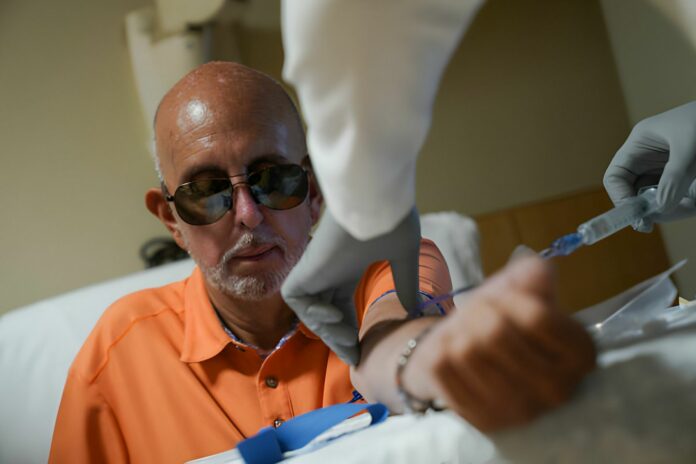Can We Prevent or Slow Alzheimer’s Dementia with Monoclonal Antibodies? Here’s What You Need to Know
Alzheimer’s disease is an irreversible, degenerative brain condition that affects over 6.5 million Americans. It gradually impairs memory and cognitive abilities, and ultimately the ability to do basic activities.
While the exact causes of Alzheimer’s disease are unknown, it is distinguished by changes in the brain, such as amyloid beta plaques and neurofibrillary, or tau, tangles, which result in the loss of neurons and their connections.
These changes have an impact on a person’s memory and cognitive abilities.
Currently, there is no known cure for Alzheimer’s. Nevertheless, emerging medications have the potential to provide relief to patients and impede the progression of the disease.
The hypothesis that amyloid deposition is a causative mechanism in the development of Alzheimer’s disease has resulted in the development of monoclonal antibodies or MABs to reduce the buildup of amyloid.
The FDA approved these medications based mostly on improvements in laboratory metrics such as medical imaging and biomarkers. However, the inability of MABs to deliver clinically meaningful improvements in patient-oriented outcomes such as decreased mortality or morbidity has sparked debate.
Earlier systematic reviews assessing the effectiveness and potential drawbacks of amyloid-targeting monoclonal antibodies (MABs) overlooked recent pivotal studies crucial to drug approval. Additionally, certain reviews incorporated Phase 1 and 2 trials with doses differing from those in subsequent trials, failing to contextualize the findings within the framework of minimal clinically important differences for patient outcomes.
Although lab-based evidence suggests that MABs are a promising treatment for Alzheimer’s dementia, a new meta-analysis involving over 20,000 participants with Alzheimer’s dementia or similar cognitive impairments reveals that Monoclonal Antibodies may increase patients’ risk of serious harm such as cerebral edema, hemorrhage, serious adverse events, and death.
In this study, Researchers conducted a meta-analysis of randomized trial studies comparing the usage of amyloid-reducing monoclonal antibodies (MABs) in Alzheimer’s dementia patients at doses consistent with Phase 3 or FDA approval trials against a placebo.
The objective was to assess the clinically meaningful benefits and harms of MABs for these patients. Inclusion criteria for the meta-analysis required randomized controlled trial studies with adult participants experiencing cognitive impairment or Alzheimer’s disease of any severity, reporting at least one clinically relevant benefit or harm to participants after a minimum of one year.
The research team identified 19 publications meeting these criteria, assessing the effects of 8 different MABs on a total of 23,202 participants.
Neither the individual study results nor the collective findings provided quantitative evidence that MABs enhanced cognitive or day-to-day functional abilities beyond the threshold of minimal clinically important differences (MCIDs).
Conversely, the studies consistently indicated that MABs were associated with statistically significant harms and raised the potential for serious adverse events such as cerebral edema, hemorrhage, and even death.
Furthermore, these drugs were deemed prohibitively expensive, ranging from $26,500 to $28,200 per year, and required regular MRI monitoring.
Image Credit: iStock
